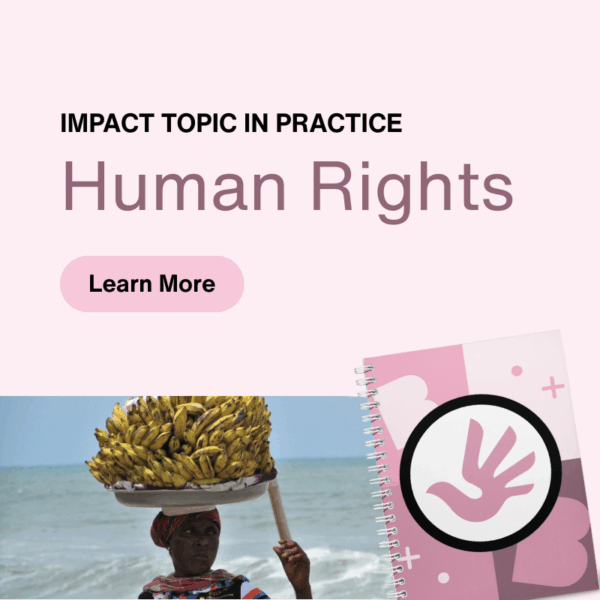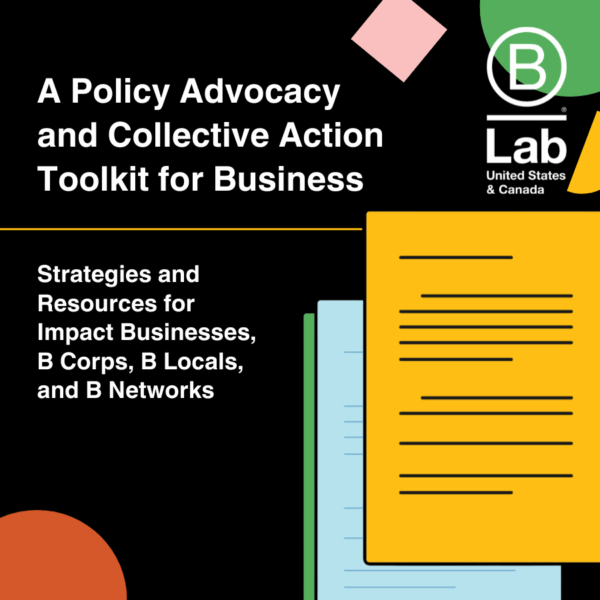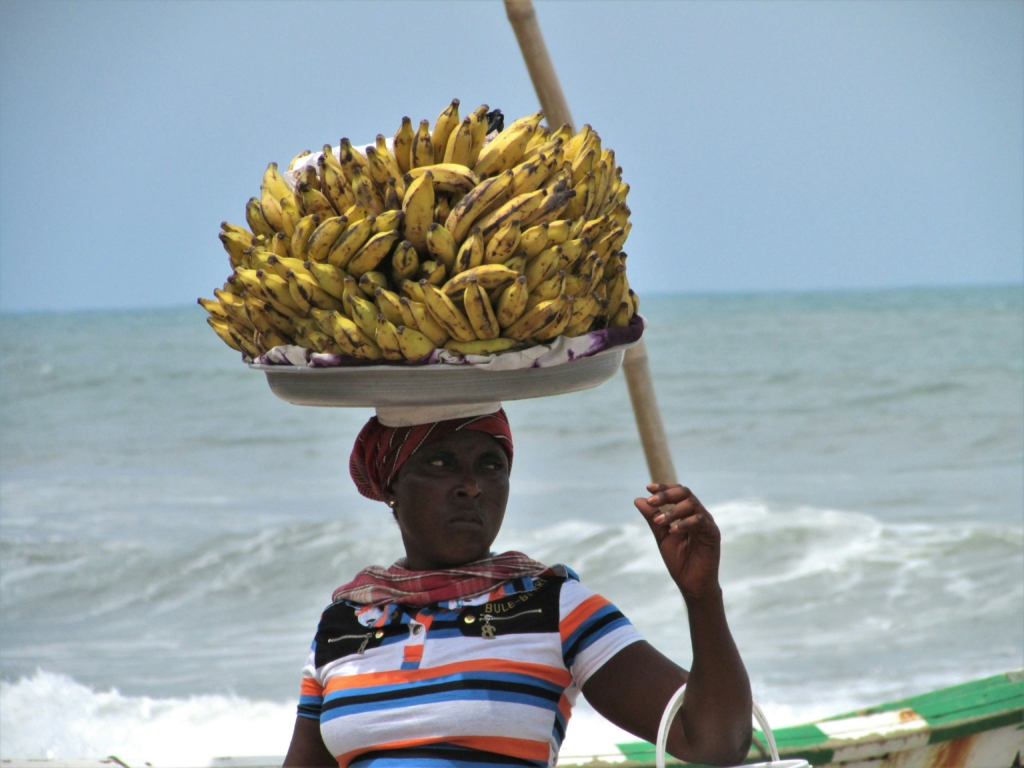HR2 in Practice: How Equifruit Is Tackling Gender-Based Violence in the Banana Industry
September 9, 2025
A women-led B Corp turns recognition of a systemic risk into policy, partnerships, and sector-wide advocacy
Every supply chain tells a human story of the workers, families, and communities whose dignity depends on how its companies operate. The journey of a banana from field to shelf, for example, is long: passing through farmworkers, packers, and shippers whose daily realities signal whether that story is one of fair wages and safe conditions, or one marked by risk, harassment, or exploitation.
B Lab’s Human Rights Standard is designed to positively impact how those stories unfold. It guides companies to move beyond statements of principle into actions that protect people across their operations and supply chains.
One of the most important steps in that process is HR2: Identify salient human rights issues and build a strategy. HR2 holds companies accountable for naming their most critical human rights risks and demonstrating how they will respond. For Equifruit, a Canadian B Corp and Fairtrade-certified banana importer, this has meant naming gender-based violence and sexual harassment as a systemic risk in the banana industry—and responding with public policy, staff training, partnerships, and sector-wide advocacy to challenge a culture of silence.

Impact Topic in Practice
The Human Rights Impact Topic aims to improve outcomes for people suffering or at risk of harm caused by a company’s operations, products, or services. Download this guide for examples, resources, and best practices.
HR2 Explained: Identifying and Acting on Salient Risks
B Lab’s Human Rights Standard rests on four pillars: commit publicly to human rights (HR1); identify salient risks (HR2); prevent and remediate harm (HR3); and partner with suppliers to improve transparency, address risks, and advance human rights goals across the value chain (HR4). Together, these create a framework for accountability, so that protecting people isn’t left to good intentions or occasional initiatives, but becomes a built-in responsibility of how companies operate.
HR2 sits at the heart of this framework. It calls on companies to look squarely at the human impact of their operations and ask: Where are people most at risk? A “salient risk” isn’t just any potential problem; it’s an issue that’s both severe in its impact on people and likely to occur. Identifying these risks requires companies to listen carefully to stakeholders, combine data with lived experience, and be honest about where harm is most pressing.
Meeting HR2 means:
- Conducting risk assessments that center on people, not just business interests
- Identifying the issues that are most severe in impact and most likely to occur
- Developing strategies with clear goals, defined roles, and input from those directly affected
- Ensuring employees, managers, and partners know how to implement the strategy
- Sharing results transparently and tracking progress over time
The goal of HR2 is focus, but also persistence. Human rights challenges are vast, and no company can solve them all at once. By zeroing in on the most pressing risks, businesses can concentrate resources where they make the greatest difference. And because risks evolve over time, HR2 builds in the expectation of continuous improvement: assessing progress, learning from setbacks, training people on the frontlines, and adapting strategies as new realities emerge.
In agriculture, where workers often face discrimination, harassment, and unsafe conditions, that focus and follow-through mean taking on systemic issues like gender-based violence: problems that cut deeply into people’s daily lives and demand sustained attention.
Of course, sexual harassment and gender-based violence are not unique to banana supply chains. They remain a systemic risk across industries, especially in male-dominated sectors where entrenched power imbalances can make abuse harder to confront. Recognizing this reality is essential to HR2’s call: naming the risks that affect people most directly, and refusing to look away.
A Systemic Risk in the Banana Industry
Bananas are one of the world’s most traded fruits, and their supply chains stretch across Colombia, Ecuador, the Dominican Republic, Costa Rica, Peru, Guatemala, and beyond. Behind the global trade, however, lies a persistent reality: women working in banana production have long faced discrimination, harassment, and gender-based violence. For decades, these abuses were kept invisible by stigma, fear of retaliation, and entrenched power imbalances in the workplace.
At the Fifth Fairtrade Banana Forum in May 2025, industry leaders and producer organizations came together to break that silence. The Silence Does Not Protect campaign, launched by the Latin American and Caribbean Network of Fair Trade Small Producers and Workers (CLAC), is a collective call to create safe and respectful working conditions for women across the sector. The campaign includes cross-country distribution of educational materials, preventative training, reporting mechanisms, and case management support for producer organizations—all designed to replace silence with accountability.
“For decades, silence has made violence in our fields and workplaces invisible,” said Marike de Peña, president of the CLAC Banana Network, at the launch. “This campaign is a declaration of principles: respect, equity, and dignity are not optional; they are the foundation of any economy that aspires to be truly fair.”

Being the Change: A Guide
B Lab U.S. & Canada developed this downloadable guide to support businesses in their advocacy and collective action work. Download the guide for resources, examples, and other action-oriented information.
Equifruit: From Naming the Risk to Leading the Change
Equifruit was among the founding signatories of the Silence Does Not Protect campaign. In conjunction with the launch, the company publicly released its Policy for the Prevention and Management of Psychological and Sexual Harassment, making its stance visible and accessible to all. The policy commits the company to fostering “a harmonious working environment, free from any form of harassment,” and makes that expectation clear to employees, partners, and stakeholders alike. It formalizes what Equifruit has long believed: that protecting workers’ rights and dignity must be a non-negotiable part of doing business.
“Sexual harassment has no place in any industry and cannot be tolerated,” said Jennie Coleman, President and Co-owner of Equifruit. “As a women-led company, we are using our voice to speak up about sexual harassment and challenge a culture of staying silent. By joining the ‘Silence Does Not Protect’ campaign and sharing our own policy publicly, we hope to encourage others to speak out and create a culture of accountability and support for women throughout the banana industry.”
Equifruit backed its pledge with concrete actions. After traveling to Colombia to sign the campaign commitment, the company:
- Published its harassment policy online
- Ensured every employee was trained to recognize and prevent harassment
- Reinforced consent culture as a non-negotiable standard of daily work
- Maintained gender parity across its leadership team
- Continued to expand mentoring opportunities for women in the produce sector
Georgia Crump, Communications & PR Specialist at Equifruit, underscored the importance of these steps: “Speaking openly about harassment in our industry is part of living our values as a B Corp. Silence protects no one. By naming gender-based violence as a risk and showing how we address it, we hope to encourage other companies to do the same, and to collectively build supply chains in which every worker can feel safe and respected.”
The company’s commitments also extend outward. Equifruit participates in the UN Food and Agriculture Organization’s World Banana Forum Gender Equity Taskforce and partners with Fairtrade producer organizations and advocacy groups to:
- Strengthen protections for women in agricultural workplaces
- Promote safe reporting mechanisms for harassment and violence
- Foster inclusive leadership across the supply chain
By combining public policy, internal action, and cross-sector collaboration, Equifruit demonstrates what HR2 looks like in practice: identifying a salient risk, building a strategy to address it, and following through with transparency and collective action. In doing so, it offers a model of accountability for the wider B Corp community and the broader banana sector.
Equifruit’s Blueprint for HR2

A female merchant selling bananas in Ghana. Photo: Yoel Winkler
Equifruit’s approach makes HR2 tangible. It models how a company can move from recognizing a systemic problem to building structures that address it head-on. By identifying gender-based violence as a salient risk, Equifruit didn’t stop at acknowledgment; it backed that recognition with policy, training, and partnerships that reach across the supply chain.
Taken together, these steps illustrate the full HR2 cycle in action:
- Risk assessment: Naming gender-based violence and harassment as a priority issue in banana production
- Strategy: Creating a prevention and management policy, approved at the highest level
- Transparency: Publishing the policy online, accessible to stakeholders
- Collaboration: Working alongside suppliers, Fairtrade networks, and global taskforces to embed gender equity, promote safe reporting, and mentor women in the sector
- Continuous improvement: Committing to ongoing engagement, reporting mechanisms, and leadership development
This is what it looks like to identify a salient risk and act on it: not treating harassment as a side issue, but recognizing it as central to worker dignity and supply chain integrity.
The lesson extends beyond agriculture. Every company has salient risks, whether they relate to labor, environment, or customer safety. HR2 asks leaders to name the issues most likely to cause harm, and to build strategies that address them openly and effectively. By taking that step, B Corps strengthen not only their governance systems but also their relationships with workers, suppliers, and communities.
From Silence to Strategy
HR2 isn’t a box to check; it’s a commitment to facing the issues that matter most, listening to those most affected, and acting with transparency and resolve. By taking those steps, businesses help build economies in which workers can live and work with dignity. They also set new expectations for what responsible leadership looks like: values guide the value chain, and silence is never mistaken for protection.
To explore how your company can begin its own HR2 journey, visit the B Impact Assessment and the Human Rights Impact Guide.
Copyright B Lab U.S. & Canada
Sign Up for our B The Change Newsletter
Read stories on the B Corp Movement and people using business as a force for good. The B The Change Newsletter is sent weekly.
